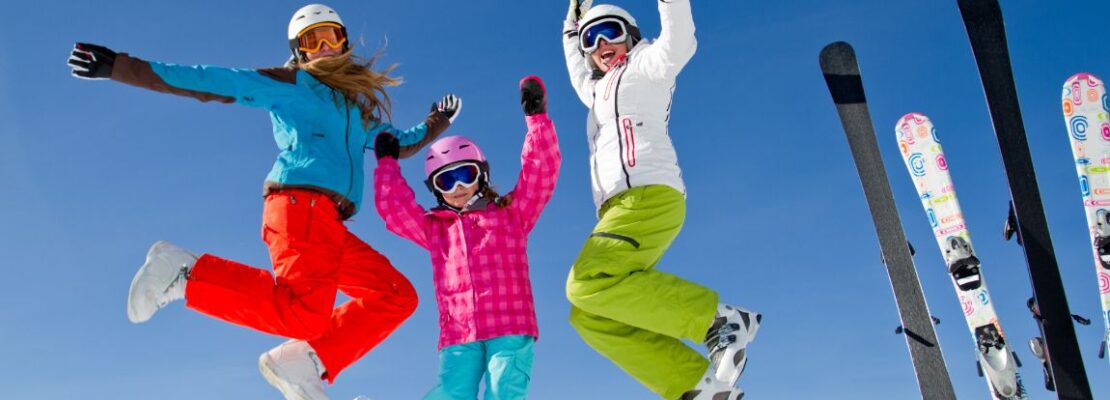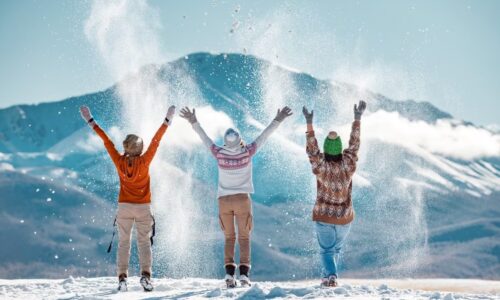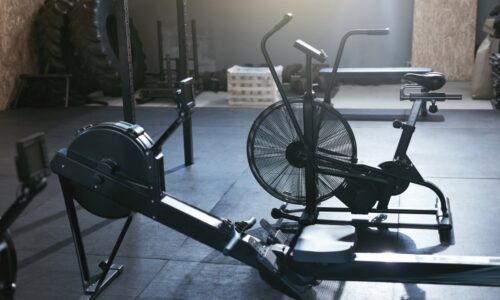Skiing is a popular winter sport enjoyed by people of all ages and skill levels. The 2022 International Report on Snow and Mountain Tourism estimated the total number of skiers worldwide to be nearly 135 million. With its excitement and adrenaline rush, skiing offers a unique experience in nature that continues to draw in more people each day.
However, packing well for a ski trip is crucial to having a memorable and enjoyable experience on the slopes. With bulky gear and the need for comfort, it’s essential to prioritize the items you bring to ensure you’re prepared for any situation.
Not only does this save space in your luggage, but it also saves you from overpriced gear at the mountain top. In this article, we’ll go over 9 must-have items that should be in every skier’s bag, helping you make the most of your time on the slopes.
1. Base Layers
Base layers are one of the most important items to pack for a ski trip, as they form the foundation of your clothing system. They are essential for providing comfort and preventing hypothermia, as well as reducing the risk of chafing and irritation.
When choosing base layers, it’s important to consider the type of material, weight, and fit, ensuring they are comfortable, breathable, and able to keep you warm in cold conditions. Pack at least two sets of base layers to allow for a fresh change in between ski runs, ensuring optimal comfort and performance throughout the day.
2. A Warm and Waterproof Ski Jacket
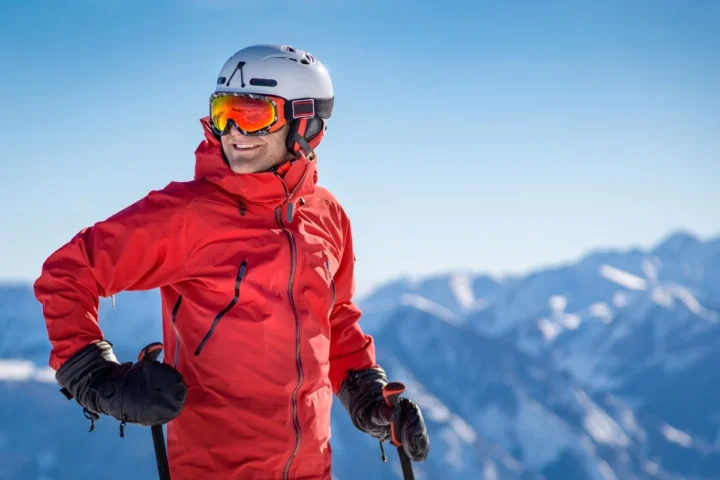
A good ski jacket should be made from a waterproof and breathable material designed to keep you dry and comfortable while on the slopes. It should also have good insulation, trapping heat inside and keeping you warm even in extremely cold conditions.
In addition, the jacket should fit well, allowing for ease of movement, and be equipped with features such as adjustable hoods, zippered pockets, and wrist gaiters to enhance functionality and comfort.
3. Electric Footwarmers
Cold feet can quickly dampen the experience and even lead to dangerous conditions such as frostbite. Properly insulated and waterproof footgear is essential for maintaining warmth and comfort on the slopes.
This is where electric footwarmers come in very handy. Unlike regular wool socks, electric socks can provide sustained warmth throughout the day and can be adjusted to the desired temperature, providing customized comfort on the slopes.
Battery-heated socks are hands down the best electric footwarmers in the business. These socks use rechargeable lithium batteries to heat the feet and toes, providing up to 14 hours of warmth on a low setting.
Additionally, they are often Bluetooth enabled and allow you to control the amount of heat you feel in your feet from the convenience of your smartphone. They can be washed in a regular washing machine and come with a year’s warranty. If you want the benefits of extra warmth, convenience, and sustainability, you can check this out.
4. Mittens
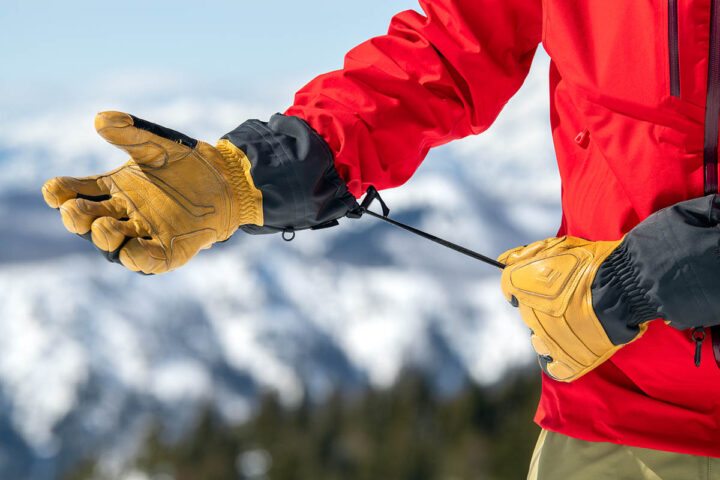
Mittens provide essential protection and warmth for your hands while on the slopes. Unlike gloves, they have a larger internal space which allows your fingers to stay together and generate more warmth, making them ideal for cold-weather activities.
When choosing mittens for skiing, it’s important to look for a waterproof and breathable material, a snug fit, and additional features such as adjustable cuffs and a nose wipe to enhance functionality.
5. Snow Boots
A good pair of snow boots should be waterproof and insulated to keep your feet warm and dry in harsh mountain environments. They should also have a non-slip sole to ensure grip and stability on slippery slopes, and be designed for ease of movement and comfort. Snow boots also provide additional support for your feet and ankles, helping to prevent injury and enhance performance.
6. Neck Gaiter
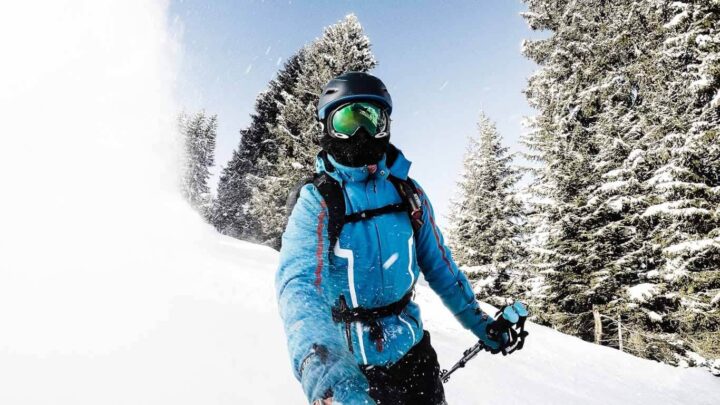
A neck gaiter is an important item to pack for a ski trip as it provides essential protection and warmth for your neck and face while on the slopes. Neck gaiters made from technical fabrics such as fleece, Gore-Tex, or windproof materials provide excellent insulation, warmth, and protection from the wind, snow, and cold.
7. Ski Goggles
Ski goggles protect your eyes from harsh weather conditions such as wind, snow, and bright sunlight, which can cause discomfort, snow blindness, and other eye-related injuries.
A good pair of ski goggles should have a durable lens that is resistant to scratches, fogging, and UV light, as well as a comfortable fit that stays in place while skiing. They should also provide a clear, unobstructed view of the slopes, making it easier to see obstacles, other skiers, and changes in the terrain.
Additionally, many ski goggles come with interchangeable lenses for different lighting conditions, making them even more versatile.
8. Headlight
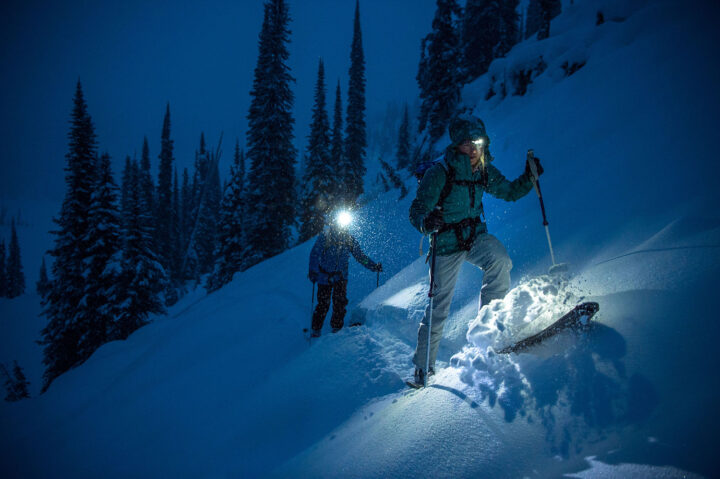
Packing a headlamp for a ski trip is important for several reasons. Firstly, it provides a hands-free lighting source for early morning or late evening ski sessions, or for when you find yourself out after dark. A headlamp allows you to see your surroundings and navigate the slopes with ease, ensuring a safe and enjoyable experience.
Secondly, a headlamp can also be useful in emergency situations, such as if you get lost, need to signal for help, or simply need extra light to set up camp or change gear.
When choosing a headlamp for skiing, it’s important to look for one that is bright, durable, and weather-resistant. It should also be lightweight and comfortable to wear for extended periods of time. Many headlamps now offer adjustable brightness, flashing modes, and rechargeable batteries, making them a convenient and practical choice for any ski trip.
9. Hydration Tablets
Skiing is a physically demanding sport that can lead to dehydration, which can cause fatigue, headaches, and other health issues. At high altitudes, the cold air is very dry. As a result, more fluid is lost as vapor while breathing. Secondly, in the cold, we are likely to drink much less water than we need. Also, cold-induced diuresis results in rapid fluid loss via urination.
Hydration tablets provide an easy and convenient way to replenish essential electrolytes and maintain hydration levels during and after a day of skiing. Sports drinks are also quite useful here, since they contain sodium and other electrolytes that hydrate better compared to water.
A study involving cross-country skiers found that those who consumed sports drinks were able to maintain a better fluid balance than the ones who hydrated themselves using plain water.
Some hydration tablets also contain vitamins and minerals that help improve physical performance, making them a great option for those looking to ski at their best.
Conclusion
Proper packing for a ski trip is essential to ensure a safe, comfortable, and enjoyable experience on the slopes. Each item on this list is designed to make your ski trip a success. Whether you’re a seasoned skier or just starting out, these 9 must-have items are essential to pack for your next ski trip.

